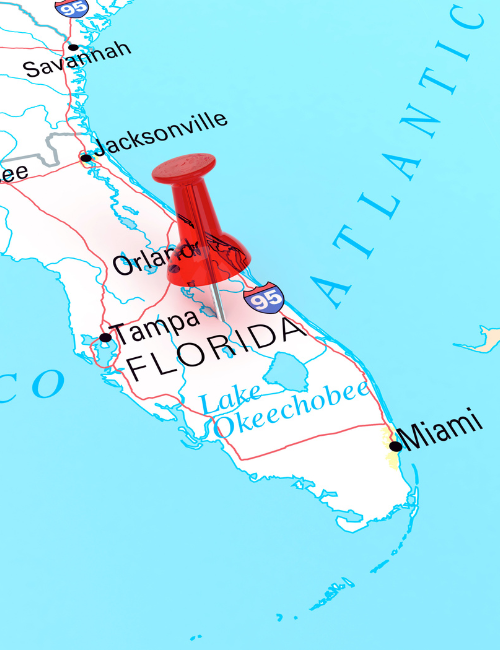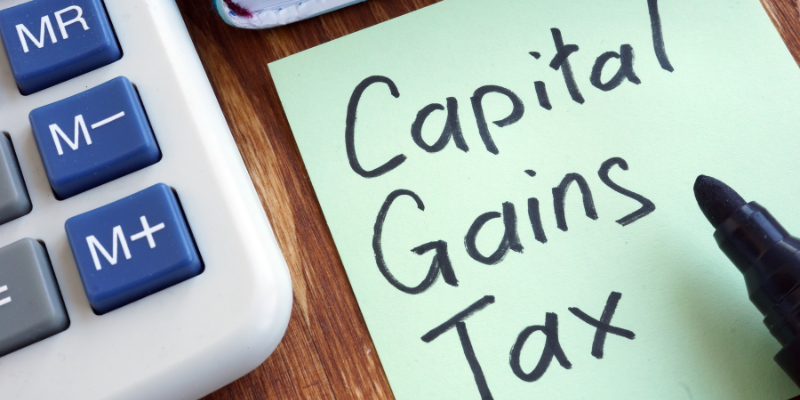
Capital gains tax on property sales can affect your financial planning, especially in Tampa, FL’s dynamic housing market. The Tampa, FL, Capital Gains Tax Calculator is essential for maximizing ROI. This page explains capital gains tax, helping you identify liabilities and strategic opportunities. Our guidance keeps you informed and prepared when selling a primary or long-term home. Discover expert property sale tips and resources.
Brief Overview
To maximize profits from a property sale, Tampa, FL, home sellers must understand capital gains tax. Understanding the difference between long-term and short-term capital gains and the taxes applied to each is essential. Sellers will appreciate the longer-term investments, as they will be subject to a more favorable tax rate. Capital gains tax calculators are available to help determine tax liability. By selling at optimal times and utilizing tax exemptions, such as the primary residence exclusion, it is possible to mitigate or even eliminate these tax liabilities. For optimal profitability, sellers should stay informed about the laws surrounding property sales and may want to consult a financial tax advisor for further guidance.
Key Highlights
- Capital gains from real estate sales affect finances and planning.
- Short-term gains are taxed as ordinary income; long-term gains are taxed less.
- Purchase price, improvements, and selling price affect tax liability when calculating gains.
- Understanding tax laws and exemptions helps maximize profits and ensure homeowner compliance.
- Capital gains, tax resources, and tools from Tampa improve financial strategies.
Understanding Capital Gains in Real Estate
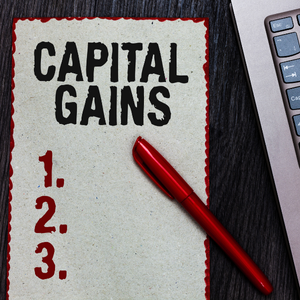
In real estate, capital gains play a critical role in the gains and losses resulting from buying and selling real estate. If you’re dealing in the real estate market in Tampa, FL, the more you know about capital gains and related terminology, the more intelligently you can make decisions that will lead to maximizing profits. We will define what capital gains are, explain the differences between short-term capital gains and long-term capital gains, and discuss the importance of both in real estate transactions. This will lay the groundwork for computing capital gains, allowing you to strategize your taxes and use them to your advantage.
What Are Capital Gains?
Capital gains, including improvements, are the profits from selling a property. Tampa homeowners and investors must understand the capital gains tax treatment, which varies depending on the holding period. Long-term gains from properties held over a year are taxed at lower federal rates than short-term gains from assets held no more than a year. Those differences affect a sale’s net profit.
Ownership duration, market conditions, and property improvements affect capital gains. A Tampa, FL, capital gains tax calculator simplifies making accurate calculations to reflect actual profits. Being aware of federal and Florida tax rules helps property owners plan, maximize profits, and comply with reporting requirements.
Short-Term vs Long-Term Capital Gains
The duration of property ownership determines capital gains. Short-term gains on properties owned for less than a year are taxed as ordinary income, which can be subject to a rate of up to 37% for high earners. Income-based federal tax rates are 0%, 15%, or 20% for long-term gains from properties held over a year. Tampa homeowners and investors seeking maximum profits should hold property longer.
| Feature | Short-Term | Long-Term |
|---|---|---|
| Holding Period | ≤ 1 year | > 1 year |
| Tax Rate | Ordinary income (up to 37%) | 0%, 15%, 20% |
| Strategy | Quick sale, higher tax | Hold to reduce tax and maximize gains |
| Deductions | Improvements, closing costs | Same, but lower overall tax impact |
Understand these differences and utilize deductions such as property improvements, broker fees, and closing costs to reduce taxable gains. A Tampa, FL, capital gains tax calculator and tax professionals help plan sales timing for maximum profit and tax compliance.
Investors should consider several strategies to effectively navigate the Tampa, FL, real estate market’s capital gains:
- To manage short-term and long-term capital gains taxes, evaluate property holding periods.
- Explore 1031 exchanges to defer capital gains tax on appreciated investments.
- Analyze local market trends to time property sales for tax breaks and market conditions.
- Consider home improvements that add value without high taxes.
- Keep up with capital gains tax laws and legislative changes.
Investors can maximize Tampa real estate capital gains by using these strategies.
Calculating Capital Gains on Home Sales
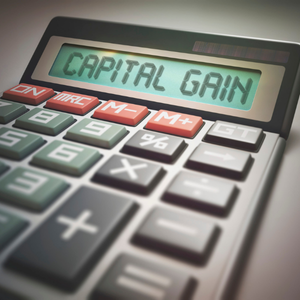
When selling real estate property, knowing how to compute caps is a major aspect to consider in maximizing your returns. This tutorial aims to teach how to measure profitable real estate sales, with special focus on property sales in Florida. Some of the methods of measuring profit, considering selling improvements, are purchase cost and other factors that affect the profit, such as inflation and real estate tax. With this set of skills, you will strategically lessen the tax return and make more profit from selling a house in Tampa, FL.
How to Calculate Capital Gains from a Property Sale
Create your property’s cost basis, including the purchase price, closing costs, and documented improvements like remodels or energy-efficient upgrades, to calculate capital gains accurately. After setting your cost basis, subtract it from your net sales price, which includes agent commissions and closing costs. Get capital gain. To simplify these steps and estimate tax liabilities, Tampa homeowners can use a capital gains tax calculator.
The duration of ownership and your federal tax bracket determine your tax rate. Florida’s lack of a state income tax boosts profitability because long-term gains from properties held for more than a year are taxed at lower rates. You can reduce taxable gains by keeping detailed records of expenses and improvements and consulting a tax professional to understand deductions and stay compliant. This strategy maximizes net profits and facilitates smarter home sales in Tampa.
Example Computation
Imagine you bought a home in Tampa for $300,000. During ownership, you spent $20,000 on major improvements like a kitchen remodel and paid $5,000 in closing costs at purchase. This gives you a cost basis of:
- Purchase price: $300,000
- Improvements: +$20,000
- Purchase closing costs: +$5,000
Total cost basis = $325,000
You later sell the home for $450,000. After paying agent commissions, closing fees, and other selling costs totaling $25,000, your net selling price becomes:
- Sale price: $450,000
- Selling expenses: –$25,000
Net selling price = $425,000
To find your capital gain:
Net selling price ($425,000) – Cost basis ($325,000) = Capital gain of $100,000
If you owned the home for more than one year, this gain is taxed at long-term capital gains rates (0%, 15%, or 20% depending on income). Tampa homeowners benefit further since Florida has no state income tax, meaning only the federal capital gains tax applies.
Using a Tampa capital gains tax calculator can help you plug in these numbers, test different scenarios, and estimate your tax bill more accurately.
| Factors Influencing Gains | Strategies for Tax Management | Impact of Ownership Duration | Role of Market Conditions |
|---|---|---|---|
| Property Location | Utilizing Tax Exemptions | Short-term Ownership (< 1 Year) | Supply and Demand Trends |
| Home Improvements | Capital Loss Offsetting | Long-term Ownership (> 1 Year) | Interest Rates Fluctuations |
| Initial Purchase Price | Investment Property Exchanges | Primary Residence Benefits | Economic Growth Indicators |
| Market Appreciation | Retirement Account Allocations | Investment Stability | Inflation Rates |
This table shows how market conditions and tax strategies affect Tampa, FL, home sales and capital gains.
Factors Affecting Your Gains
Several factors influence the financial benefits derived from selling a home. One of the most important factors is the state of the market. Tampa is a growing market. If the market is strong, potential buyers may be willing to pay a higher price for the home. Conversely, if the market is weak, the return on the home may decrease. Also, the amount of time the property is owned is important. If the property is owned for more than one year, the owner is eligible for long-term capital gains, which are taxed at a lower rate than short-term capital gains, which can be quite high.
The renovations that a homeowner undertakes during the homeownership period can also reduce the capital gains owed on the home. If a homeowner takes on a large-scale renovation that is energy efficient and is documented, it can decrease the amount of profit that is realized on the home. For home economic planning, utilizing a capital gains tax calculator, even though Florida has no state income tax, can be quite beneficial for homeowners.
Tax Implications for Home Sellers
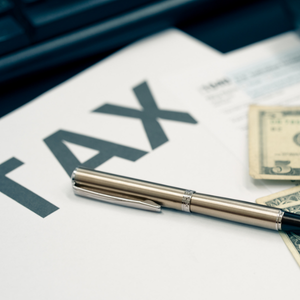
Understanding the capital gains tax ramifications when selling a home in Tampa, FL, is essential when considering the tax consequences of selling a home, since this tax will have the greatest impact on the net proceeds from the sale of your property. We will discuss the impact of the tax year on your liabilities and the rates relative to the tax on the more costly properties that you may own. Knowing this will allow you to stay within the bounds of federal regulations while maximizing your profit. The rest of this section explains the capital gains tax rates that will apply to you and the impact of the tax year when selling your house.
Capital Gains Tax Rates You Should Know
You must consider capital gains tax when selling your home. If you sell a home you have owned for a year or less, you pay the short-term capital gains tax with a tax rate of 37% if you are a high earner. If you sell a home you have owned for one year or more, you pay the long-term capital gains tax, with tax rates starting at 0% and increasing based on how much you earn at 15% and 20%. The IRS has primary residence exclusions that allow single filers to pay $250,000 in tax and married couples filing jointly to pay $500,000 in tax, which is exempt if they meet the residency requirements.
There are tax distinctions that help Tampa sellers formulate innovative selling strategies. Tax estimators and scenario comparisons are very important for planning ahead, especially with the potential for changing federal tax rules. You now have the opportunity to not worry about state income tax when obtaining federal tax rules and when working with a tax professional, so you can keep your profits and pay as little tax as possible.
Tax Year Considerations for Home Sales
How much capital gains tax you owe depends on the tax year when you sell your Tampa home. Selling when your income for the year is lower may keep you in a lower tax bracket. As gains are added to your taxable income for the year, be careful of changes in the federal tax laws and sell before a projected increase in rates. Careful alignment of the sale with your income, marital status, retirement plans, and changes in tax laws can preserve a lot of value.
The timing of capital improvements is also a factor. Upgrades made before a sale can increase your home’s cost basis, which in turn lowers your taxable gains. There may also be timing advantages in choosing a sale date from the middle to the end or from the beginning to the middle of a tax year. You can use a Tampa tax calculator, and a tax professional can help you compare scenarios to find the most advantageous time to sell.
To maximize profits, Tampa home sellers must understand the capital gains tax. A trustworthy capital gains tax calculator can help you make financial decisions. To optimize tax outcomes, plan ahead and consult tax professionals. Download our comprehensive guide today for more strategic advice and personalized guidance. Expert advice, valuable tips, and essential knowledge to navigate capital gains tax will make home selling easier and more profitable.
Looking to sell your home while reviewing numbers on a Tampa, FL, Capital Gains Tax Calculator? If you want to sell quickly, avoid costly repairs, or prefer a smooth, hassle-free process, Revival Homebuyer is here to help. As a trusted company that buys homes in Florida, we provide fair cash offers and handle every detail from start to finish. You can also sell your Tampa house faster with our streamlined service. Have questions or ready to get an offer? Contact us at (813) 548-3674 for a no-obligation consultation. Get started today!
FAQs
Where does the capital gains tax fit into property sales in Tampa, FL?
Selling property generates capital gains tax. In Tampa, FL’s dynamic market, understanding this tax is essential for the best property sales results.
How does the Tampa, FL, Capital Gains Tax Calculator help with financial planning?
The calculator helps estimate tax liabilities and plan property sales. It helps determine whether your gains are short-term or long-term, affecting your profits.
What is the difference between short-term and long-term capital gains?
Short-term capital gains are taxed as ordinary income on properties held for a year or less.
Long-term gains from properties held for more than a year are subject to lower tax rates.
How do you calculate capital gains for property sales?
Compare the property’s purchase and selling prices, adjusting for improvements. To calculate capital gain, subtract all expenses from net sales.
Cost basis = Purchase price + Improvements Capital gain = Net sales price - Cost basis
What strategies maximize profits and maintain capital gains tax compliance?
Understand tax laws and exemptions, plan selling times, and consult professionals to maximize profits. Get accurate estimates with the Tampa, FL, Capital Gains Tax Calculator.
Helpful Tampa Blog Articles
- Tampa, FL, Capital Gains Tax Calculator
- Capital Gains Tax After Selling a House in Tampa, FL
- Selling a House with Solar Panels in Tampa, FL
- How Long to Stay in a Tampa, FL, Home Before Putting It on the Market
- Fun Facts Highlighting What Makes Tampa, FL, Special
- Sell A House With Asbestos In Tampa, FL
- Tampa, FL, Cost of Living
- Taxes When Selling an Inherited House in Tampa, FL
- Do I Need a Lawyer to Sell My House in Tampa, FL?
- Can I Sell My House If I’m Behind on Payments in Tampa, FL?
- Can the Executor of a Will Sell Property in Tampa, FL?
- Can You Sell a House As-Is Without Inspection in Tampa, FL?
